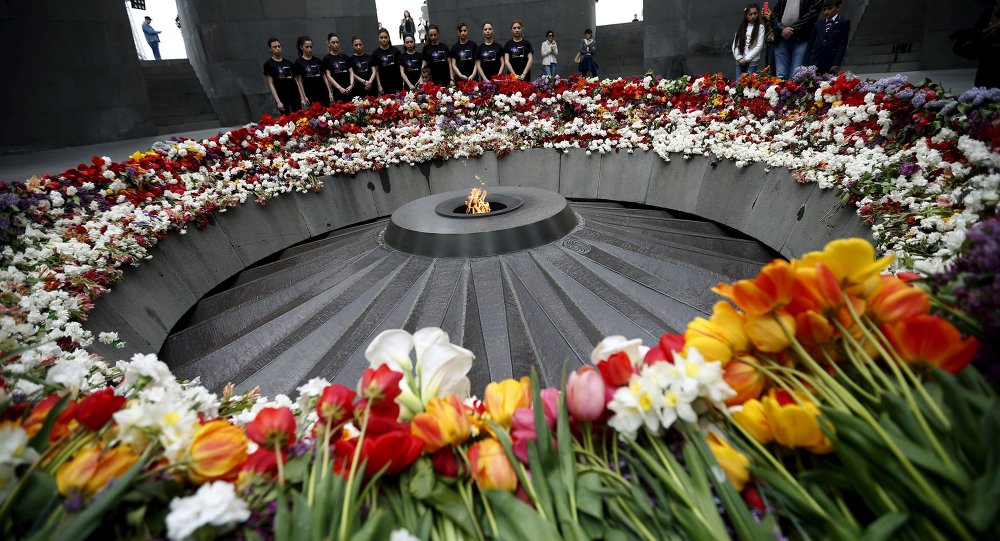Armenians across the entire world on Friday hold commemorations marking the centenary of the Armenian massacre by Ottoman authorities.
The mass killings and deportations, which started in 1915, are considered the most tragic page in the history of the Armenian people. The genocide has left a heavy imprint, not only on their entire subsequent history but also on their sense of national identity.
The massacre took place on the territories of the Ottoman Empire, the predecessor of present-day Turkey, that were historically called Western Armenia, now Eastern Anatolia, and were inhabited predominantly by Armenians. Their annihilation was part of the Ottoman Empire’s policy based on its ideology of Pan-Turkism and intolerance of non-Turkic people.
Most Tragic Page of Armenian History
Historians split the genocide into two stages. During the first stage (1878-1914), the task was to retain the territory of the enslaved people and engineer their exodus, whereas by the second stage (1915-1922), the main goal was to destroy the ethnic and political Armenian population.
The initial strength of the population residing in the Ottoman Empire at that time is disputable because most archives were destroyed. But it is a known fact that in the mid-19th century non-Muslims amounted to more than half of the empire’s population.
According to the Armenian Patriarchate, three million Armenians lived in the Ottoman Empire in 1878. Their population dwindled by more than a million during the 1894-1896 Armenian Massacres, their exodus from Turkey and their forced conversion to Islam.
The Young Turks political group that came to power after the 1908 revolution continued the crackdown on the Armenian national liberation movement. They launched a campaign of forced Turkization and banned non-Turkish organizations.
In 1909, the Young Turks ordered the killings of about 30,000 people – including Armenians, Greeks, and Syrians – in Adana and Aleppo, in what became known as the Kilikya Massacre.
On April 24, 1915, a day now observed as the Armenian Genocide Remembrance Day, mass-scale arrests of Armenian intellectuals, and representatives of the religious, economic and political elites were launched in Constantinople, now Istanbul.
Massacres and deportations of Armenians from Western Armenia started in May-June 1915. Armenians were expelled to deserts, killed by marauders or died of hunger and thirst.
During the final act of deportation on June 21, 1915, its main inspirer, Minister of the Interior of the Ottoman Empire Mehmet Talaat Pasha ordered the expulsion of “all Armenians without exception” from ten provinces in the east of the country, save those who were considered useful to the state.
The expulsion and annihilation of Turkish Armenians ended with several military blows, such as the crackdown on refugees who returned to Kilikya in 1920 and the 1922 massacre in Smyrna (modern Izmir).
Smyrna was the last surviving compact Armenian community and with its destruction the Armenian population of the Ottoman Empire practically ceased to exist in its historical land. Survivors sought refuge all over the world, forming diasporas in dozens of countries.
Current estimates of the genocide’s toll vary from 200,000, according to some Turkish sources, to over two million. The majority of historians put it between one and one and a half million.
International Recognition of Armenian Genocide
For many years, Armenians all over the world have insisted that the international community should recognize the fact of the genocide officially and without any reservations.
Sputnik
M. W

